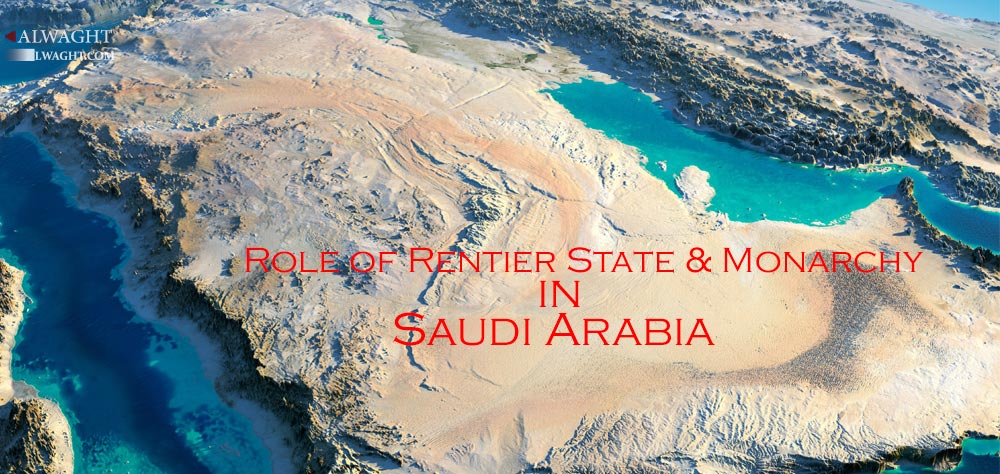Alwaght- In general if a state acquires more than 40% of its income through the sale of indigenous resources, it is considered a rentier state. In other words, a rentier state’s main source of income comes from monopolies, selling goods, or providing services higher than the norm.
Rentier state and monarchy have been the only economical and political systems in Saudi Arabia. In 1932 and only six months after the formation of the first political system -which was a monarchy- oil was discovered in this country. Foreign aid is another source that the saudi government is very dependent on.
Rentier characteristics in Saudi Arabia
In rentier states, bureaucracy and legal procedures are quite weak. The ruling class consists of a group of close and interdependent people, therefore fidelity to specialization is preferable. The governance system in Saudi Arabia is traditional and closed, to the point that even attempts for people’s participation in affairs and formation of democracy are being faced with opposition. Saudi princes are the heads of all major organizations in the country, and the criteria for their appointment is their blood relations with the House of Saud. Another characteristic of rentier states is supporter raising. On the other hand, due to the concentration of economic resources in the hands of the government ,and social classes’ dependence on the government, independent classes cannot form. In the case of the middle classes, as a result of their employment in government affiliated institutions, they are also dependent on the government.
The government is not dependent on taxes, hence it views itself independent from people. However, people are dependent on the government to gain economic privileges. These features can easily be seen in the Saudi economy system.
More that 7000 princes in Saudi Arabia have official positions in the government. The ruling class is independent from the general public, so the economic projects such as the 2030 plan, are one-sided, and not dependent on people. Also, if a limited group possesses the political power, corruption in the system is more likely to happen, and the law will be interpreted in favor of those in power. It should be mentioned that corruption by members of the House of Saud has been reported many times.
Rentier economy stabilizing the monarchy
Rentier economy is important for stabilizing a monarchy system. This form of economy also paves the way for adherence. Saudi Arabia has a rentier economy, and its political system is of the monarchy kind. The existence of personal ties between economic groups and government officials, and economic groups’ support of authorities, are characteristics of a monarchy system. Obedience to the political system is considered valuable in both a monarchy and a rentier economy. Existence of these systems in Saudi Arabia has suppressed the challenges that the Saudi government could potentially be facing.
Arbitrary appointment and dismissal by rulers, issuing verbal commands, unreliable intelligence service, bribes, and selective enforcement are some of the other features of a monarchy, all of which have been present in Saudi Arabia. Such system is not flexible enough for alterations and changes, and any attempt towards change will be faced with opposition. The instrumental use of religion and militarism can also be observed in Saudi Arabia. Since the very beginning of formation of the political structure, the Saudis have opposed many political changes and challenges. Saudi Arabia is also one of the biggest customers of European and American weaponry.
Generally, monarchy and rentier economy are not necessarily simultaneous, but they go hand in hand in Saudi Arabia. Monopoly of economic interests by a singular class of society, is one of the basic characteristics of a rentier economy. On the other hand, the adherence in social and political affairs that is present in a monarchy system, helps pave the way for a rentier economy.



























